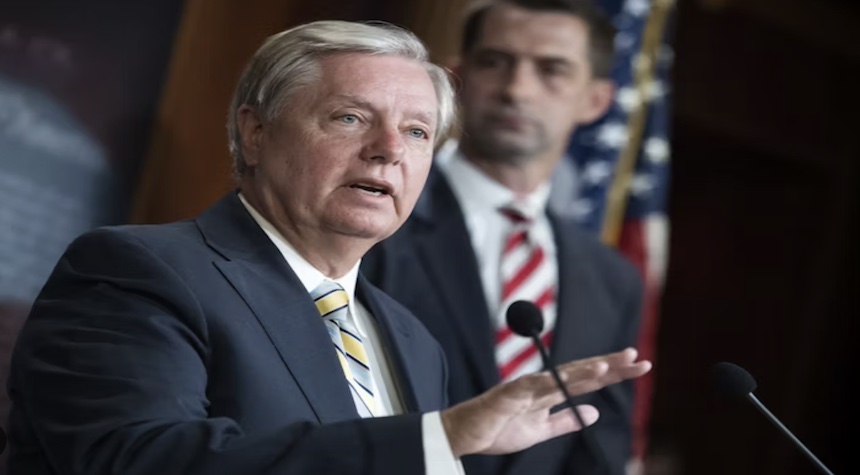Senator Lindsey Graham is advocating for a more aggressive stance toward Iran. The South Carolina Republican recently encouraged Israel to consider dismantling Iran’s oil infrastructure and to maintain their offensive against the Iran-backed Houthi terrorists in Yemen. This, of course, follows a series of airstrikes by Israeli forces on Yemen’s Hudaydah Port in response to a missile attack by Houthi militants near Israel’s primary international airport.
Graham suggests, “It wouldn’t take much to put Iran out of the oil business,” implying that a significant blow to Iran’s oil facilities could cripple their economy and, by extension, their ability to support militant groups such as the Houthis. This is a non-argument. The reality is that any such action would likely escalate tensions and potentially lead to wider conflict in the Middle East.
The left will tell you that diplomatic talks and negotiations are the solution. This brings me to my next argument. The notion that Iran’s Supreme Leader, Ayatollah Ali Khamenei, would abandon his nuclear ambitions as a result of a peace treaty is fundamentally flawed. As Graham rightly points out, there is “zero chance” of such an outcome.

Iran’s leadership has shown time and again a stubborn commitment to its nuclear program and a hostility toward Western powers. Graham’s assessment, while bleak, is more grounded in reality than the optimistic, naive perspective often touted by the left.
Iran is a significant threat to stability in the Middle East. Its nuclear ambitions, support for militant groups, and antagonistic stance toward Israel and the West are well-documented. The question that we must consider is not whether Iran poses a threat, but how best to address that threat.
Regardless of your political leanings, it’s essential to recognize the complexity of the situation. A military strike against Iran may satisfy our desire for a swift resolution, but at what cost? On the other hand, diplomatic negotiations have thus far yielded little progress. The path forward is uncertain, but we must approach the situation with a sober understanding of the potential consequences and a commitment to preserving stability and security in the region.

